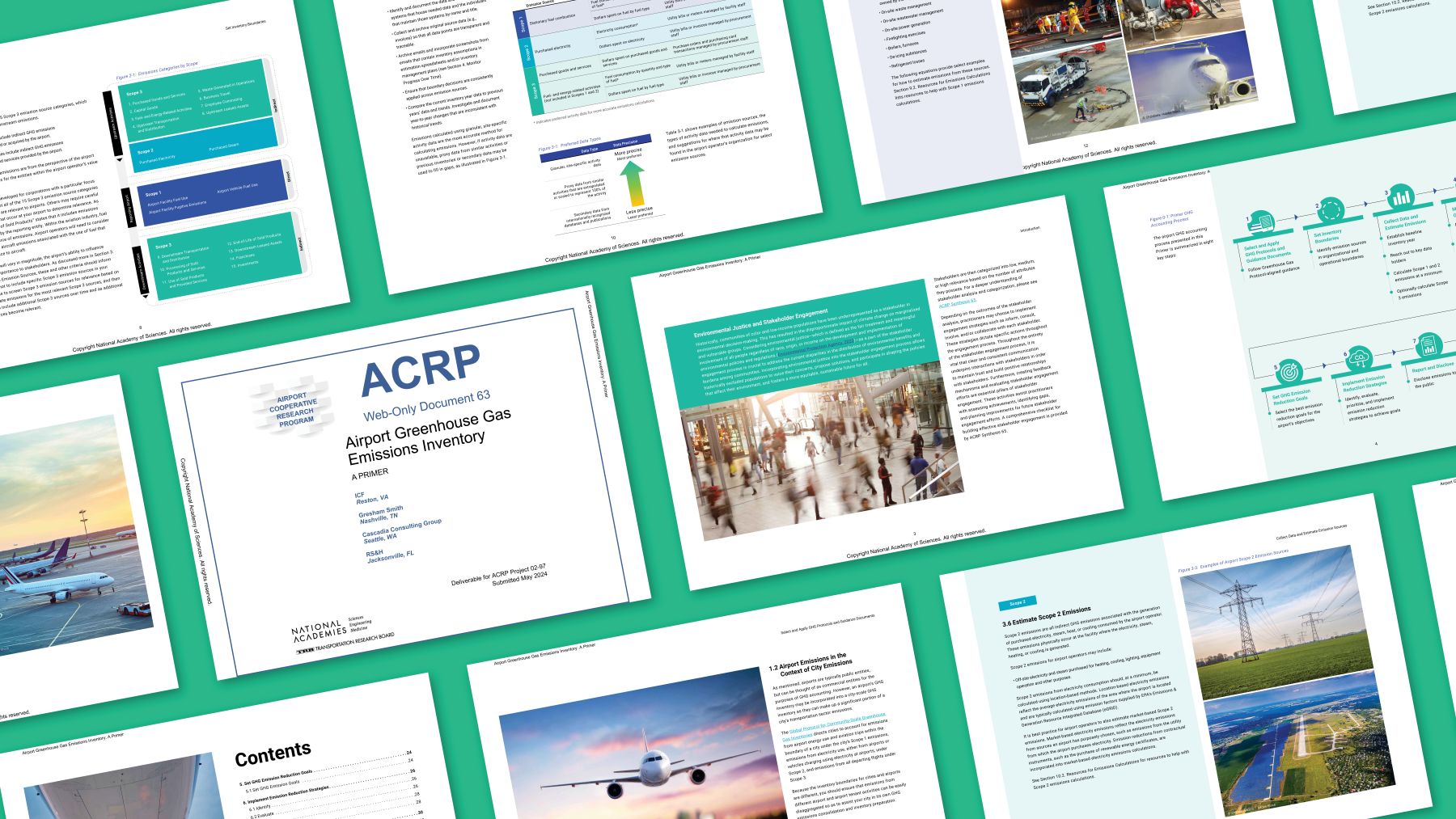
Charting a Greener Flight Path: Helping Airports Track and Reduce Greenhouse Gases
ACRP Report 63: Airport Greenhouse Gas Emissions Inventory
Client
Airport Cooperative Research Program of the National Academies of Sciences, Engineering, and Medicine’s Transportation Research Board
Location
Washington, DC
Expertise
Services
Industry Standards and Guidebooks, Sustainability and Resiliency Planning
The airport industry is increasingly focused on reducing its environmental impact, particularly regarding greenhouse gas (GHG) emissions. In response to this growing concern, the Airport Cooperative Research Program (ACRP) launched a project to update and enhance existing tools and reports related to GHG emissions management at airports. Gresham Smith, in collaboration with ICF, RS&H, and Cascadia Consulting Group, led this initiative to provide updated resources, with a particular emphasis on assisting small- to mid-sized airports that may lack the resources to develop comprehensive GHG inventories.
Gresham Smith’s role in the project was to review and improve the tools and reports, leveraging our extensive expertise in airport sustainability work. The team also engaged with airport practitioners across the country to gather practical feedback, ensuring the updated resources would meet the needs of operators aiming to reduce their carbon footprints and improve environmental performance.
A key outcome of this project was the development of ACRP Report 63: Airport Greenhouse Gas Emissions Inventory Primer. This primer provides airport operators with guidance on how to account for and manage their GHG emissions, helping them understand their emissions profile, set meaningful reduction goals, and track progress. Although the tool is applicable to all airports, it was specifically designed for small- to mid-sized airports, which often face challenges in managing their emissions due to limited resources.
By following best practices outlined in the primer, airports can create more accurate GHG inventories, align their operations with global climate targets, and communicate their environmental efforts to stakeholders. The goal is to help airports identify the sources of their emissions, set emission reduction goals, and develop strategies to achieve those goals. These strategies may include initiatives such as improving energy efficiency, increasing renewable energy use, or adopting sustainable transportation practices.
The primer also outlines a four-step approach for reducing GHG emissions: identifying potential strategies, evaluating their feasibility, prioritizing the most impactful actions, and implementing those strategies while establishing monitoring and reporting systems to track progress.
ACRP Report 63 helps airport operators understand and reduce their GHG emissions, contributing to the broader goal of aligning with global climate targets and promoting a more sustainable aviation industry. Gresham Smith’s involvement in this project was crucial in refining these tools and ensuring they are practical, accessible, and effective for airports working to reduce their environmental impact.
View the report here.